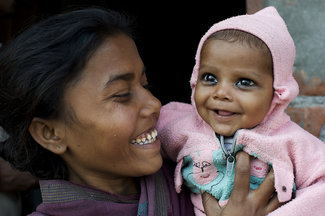

Displaying 591 - 600 of 751
On Wednesday 20 May, 2015 three caretakers from an orphanage (Yathimkhana) run by a religious trust at Nettoor in India were apprehended and taken into custody by railway police at the Ernakulam Town Railway station for suspected attempted trafficking of 29 boys ages eight to 17, who said they were residents of the orphanage.
In this article for the World Post (a collaboration of the Huffington Post and Berggruen Institute), UK’s former Prime Minister, Gordon Brown, explains the danger of child trafficking that has followed the earthquake in Nepal and calls for the establishment of a humanitarian fund for education in emergencies.
Highlights recent activities of the members of the Better Volunteering, Better Care Global Working Group in response to the earthquake in Nepal, as well as other relevant resources and articles.
UNICEF Nepal has produced a “What you should know” FAQ sheet on orphanage volunteering in Nepal for distribution, as well as an infographic that can be used to encourage people not to donate to orphanages in Nepal.
This article from the Australian sheds light on the increased vulnerability of children to trafficking in the aftermath of the earthquake in Nepal.
According to this article from the Times of India, the Supreme Court of India has expressed deep concern regarding the adoption of Indian children by foreign nationals as a means of child trafficking and exploitation.
Next Generation Nepal has published a press release on its current efforts to combat child trafficking in the wake of the devastating earthquake that has hit Nepal.
This piece from Friends International highlights the work of Next Generation Nepal and others to address the increased risks faced by children, especially those most vulnerable, in the aftermath of the recent earthquake in Nepal.
This post from the London School of Economics Volunteer Centre urges people wishing to volunteer with children in Nepal in response to the recent earthquake to think first about their impact. The post shares several resources on orphanage volunteering, including links to Next Generation Nepal, Orphanages.no, The Better Care Network, Learning Service and UNICEF Nepal as well as a video on orphanage volunteering.
This episode of BBC Newshour highlights the issue of children living in institutions in Nepal, both before and after the earthquake.
